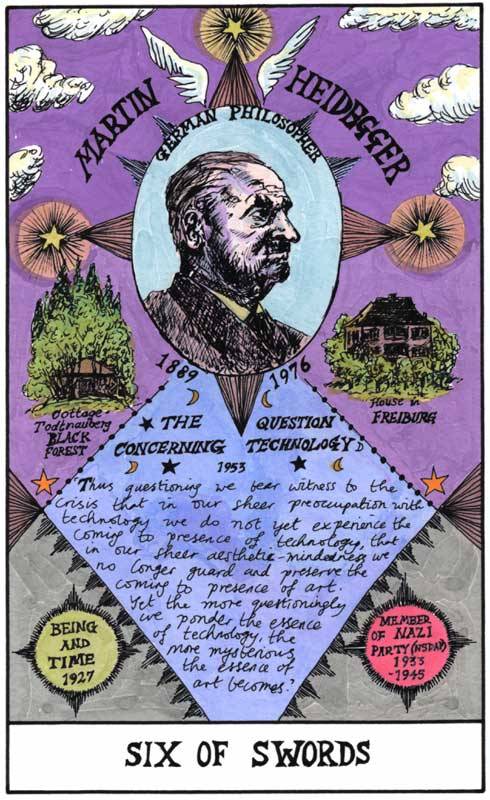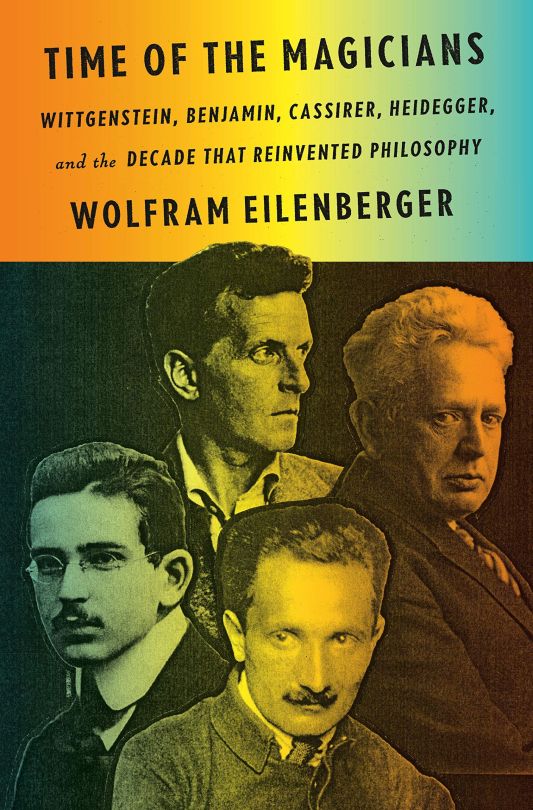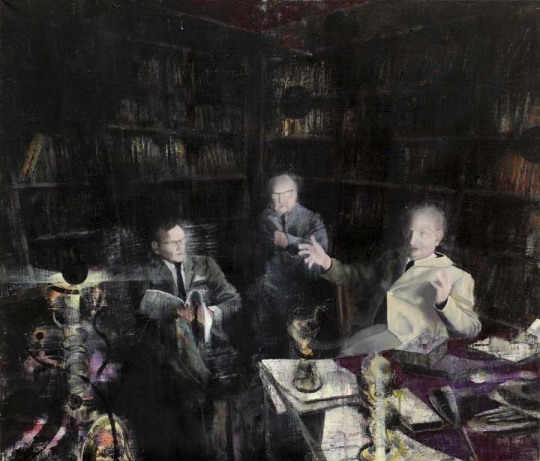#martin heidegger
Photo


Ken McMullen
- Ghost Dance
1983
#pascale ogier#ken mcmullen#ghost dance#ghostdance#kafka#marx#karl marx#heidegger#martin heidegger#sigmund freud#freud#franz kafka#british film#1983#hauntology
441 notes
·
View notes
Text

Anselm Kiefer, Für Martin Heidegger Todtnauberg, 2014
78 notes
·
View notes
Photo

Martin Heidegger - Michael Kunze , 2006.
German , b. 1961 -
oil on canvas , 35 × 50 cm.
559 notes
·
View notes
Text
Mas ¿qué es el dolor? El dolor desgarra. Es el desgarro. Con todo, no desgarra en astillas que se desparraman. Ciertamente el dolor desgarra desjuntando; separa, pero de modo que, al mismo tiempo, reúne todo en sí. En tanto que separación, su desgarro es, a la vez, el tirar que, como trazo primero abriendo de pronto el espacio, dibuja y junta lo que se mantiene separado en la dis-junción. El dolor en el desgarro es lo unitivo que reúne y separa. El dolor es la juntura del desgarro. Ella es el umbral. Ella lleva a término el Entre, el Medio de los dos que están separados en él. El dolor junta el desgarro de la Diferencia. Es dolor es la Diferencia misma.
—Martin Heidegger, «El habla» en De camino al habla. Traducción de Yves Zimmermann.
22 notes
·
View notes
Text
insan, riskin, mutluluğun ve hayranlığın zirvesine sürekli dayanabilen sıkıcı bir nesne değildir.
heidegger, arendt - letters
#martin heidegger#hannah arendt#love letters#letters#mektuplar#aşk mektupları#simone de beauvoir#jean paul sartre#varlık ve zaman#kitap#edebiyat#blogger#felsefe#kitaplar#blog#kitap kurdu#kitaplık#kürk mantolu madonna#sabahattin ali#attila ilhan#charles baudelaire#andrei tarkovsky#dostoyevski#frida kahlo#friedrich nietzsche
49 notes
·
View notes
Quote
Longing is the agony of the nearness of the distant.
Martin Heidegger
#Martin Heidegger#thepersonalwords#Distant#quotes#literature#life quotes#author quotes#prose#lit#spilled ink#writers on tumblr#writing inspiration#poets on tumblr
94 notes
·
View notes
Photo

Six of Swords. Art by Suzanne Treister, from HEXEN 2.0.
Martin Heidegger
20 notes
·
View notes
Text
Diverso dal giungere alla fine è il tramontare. Ogni tramonto rimane nascosto nell’alba”
Heidegger
21 notes
·
View notes
Text
Did the "Magicians" reinvent philosophy?

I have finished listening to Time of the Magicians: Wittgenstein, Benjamin, Cassirer, Heidegger, and the Decade That Reinvented Philosophy by Wolfram Eilenberger. I found this book to be frequently annoying, but I nevertheless learned quite a bit from it. Of the four central figures of the book, only Wittgenstein is really familiar to me, so I had much to learn about Cassirer, Heidegger, and Benjamin.
A substantive reason I found the book annoying: certainly all four of the central figures of this book have been influential, but did they “reinvent” philosophy? Perhaps Wittgenstein did; many would argue that Heidegger did as well. A cluster biography of Wittgenstein and others who contributed to the foundations of analytical philosophy would communicate a reinvention of philosophy, or a cluster biography of Heidegger and others who contributed to phenomenology and existentialism would also do, but the figures chosen for this book were moving in such different directions that it would be more accurate to say that they fragmented philosophy than to say that they reinvented it. Benjamin, moreover, was an unimaginative communist who contributed almost nothing to philosophy (he has been influential, but not in any way that has reinvented philosophy), and, while Cassirer was certainly influential, he didn’t put philosophy on a new path.
A less substantive reason I found the book annoying: the author portrays all four of his protagonists as being rebels against academic philosophy, but in fact all four received a conventional university education, all except Benjamin were professors of philosophy, and Cassirer and Heidegger became rectors of their respective universities. These are not the biographies of men who rebelled against academic institutions, but rather of men whose lives were immersed in and defined by academic institutions. The cognitive dissonance here is palpable.
In Chapter VII. Arcades: 1926-1928, the author, in discussing the comical misunderstandings between Wittgenstein and his Vienna Circle colleagues (and here he is spot on), characterizes the attitude of the Vienna Circle logical positivists (and the tradition they inaugurated) as aspiring to be “engineers of the soul,” which he rightly contrasts to Wittgenstein, but which he also intends as a criticism:
“For decades, in ‘Wittgenstein research,’ every inch of interpretation has been fought over as if it were a matter of transposing the architectural plan of a brilliant master without the slightest deviation, rather than continuing to think in terms of the clearest possible vision of our relationship with the world. Precisely as if philosophers were engineers of the soul rather than creative seekers in an open space without a final foundation or a protective cover.”
I will admit I rather like the idea of philosophers being “engineers of the soul.” In early Islamic civilization philosophers were commonly thought of as doctors of the soul. As we have constructed our industrialized civilization, dominated as it is by technology, we stand in need of a new simile for the philosophical task; “engineers of the soul” sounds singularly appropriate to me, and I would be happy to shoulder the label.
The book culminates in a debate between Cassirer and Heidegger at a conference in Davos in 1929. I hadn’t previously heard of this debate, and, looking it up, I found that there is another book about this, Continental Divide: Heidegger, Cassirer, Davos by Peter E. Gordon, who, like Eilenberger, situates the debate as a turning point (or, if you prefer, a rupture) in twentieth century philosophical thought. Knowing about this debate, I can better understand why the author chose to include Cassirer among his featured protagonists, since it sets up the debate at the end of the book. Still, that’s not enough of a basis on which to argue that the four protagonists reinvented philosophy; they did not.

13 notes
·
View notes
Quote
If I take death into my life, acknowledge it, and face it squarely, I will free myself from the anxiety of death and the pettiness of life — and only then will I be free to become myself.
Martin Heidegger
43 notes
·
View notes
Photo


Photography: Hans Bellmer
* * * *
Amo: volo ut sis.” (I love you: I want you to be.)
— Martin Heidegger, quoting Augustine, in a letter to Hannah Arendt, 1925
"This mere existence, that is, all that which is mysteriously given to us by birth and which includes the shape of our bodies and the talents of our minds, can be adequately dealt with only by the unpredictable hazards of friendship and sympathy, or by the great and incalculable grace of love, which says with Augustine, ‘Volo ut sis (I want you to be),’ without being able to give any particular reason for such supreme and unsurpassable affirmation.
— Hannah Arendt, The Origins of Totalitarianism
[Belles-lettres]
#quotes#Belles-lettres#Hannah Arendt#The Origins of Totalitarianism#Hans Bellmer#Martin Heidegger#Augustine#mere existence#unsupassable affirmation
100 notes
·
View notes
Text

Io non potrò mai averla per me, ma lei apparterrà d’ora in poi alla mia vita, ed essa ne trarrà nuova linfa. Noi non sappiamo mai ciò che possiamo diventare per gli altri attraverso il nostro essere.
.🦋.
🔸Martin Heidegger ad Hannah Arendt
11 notes
·
View notes
Photo

What is Metaphysics? Spiegel Interview II - Michael Kunze , 2007.
German , b. 1961 -
Oil on canvas , 120 × 140 cm
295 notes
·
View notes
Text
¿Cuáles serían el suelo y el fundamento para un arraigo venidero? Lo que buscamos con esta pregunta tal vez se halla muy próximo; tan próximo que lo más fácil es no advertirlo. Porque para nosotros, los hombres, el camino a lo próximo es siempre el más lejano y por ello el más arduo. Este camino es el de la reflexión. El pensamiento meditativo requiere de nosotros que no nos quedemos atrapados unilateralmente en una representación, que no sigamos corriendo por una vía única en una sola dirección.
—Martin Heidegger, Serenidad. Traducción de Ives Zimmermann.
12 notes
·
View notes
Text
anılarımda beni yalnızca sen tedirgin ediyorsun.
ingeborg bachmann - dar zaman
#kitap#edebiyat#blogger#felsefe#kitaplar#blog#kitap kurdu#şiir#charles bukowski#ingeborg bachmann#malina#dar zaman#andre gide#dar kapı#simone de beauvoir#love letters#martin heidegger#ahmet hamdi tanpınar#saatleri ayarlama enstitüsü#sabahattin ali#kürk mantolu madonna#milan kundera#varolmanın dayanılmaz hafifliği#tezer özlü#marcel proust#alain de botton#jacques lacan#sigmund freud#fernando pessoa#huzursuzluğun kitabı
18 notes
·
View notes
Text

The inner voice says, "But you will eventually die."
Martin Heidegger called the inner voice "conscience". He said that when we have the conscience, we will become human for the first time.
He also said "If I take death into my life, acknowledge it, and face it squarely, I will free myself from the anxiety of death and the pettiness of life - and only then will I be free to become myself."
8 notes
·
View notes